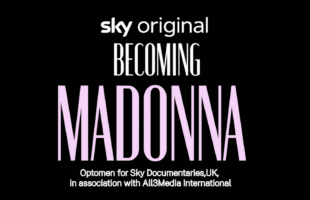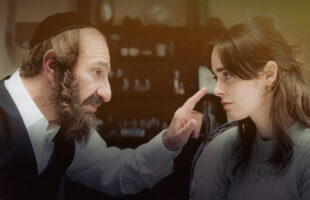“Catwalk, Big Board.”
At the call of the “command” from the gallery of Studio E, the technical director calls up a pre-digitised sequence. In a matter of seconds, as if in a synchronised “dance”, multiple robotic cameras truck across the studio floor (catwalk) silently but swiftly, finishing with a long shot of the news presenter against a gigantic LED screen (big board) displaying a looped video of the London cityscape in HD clarity, as pre-programmed lights turn the set a cool bluish hue. Welcome to New Broadcasting House, home to BBC World News.
Appropriately dubbed “The World’s Newsroom”, the largest multilingual newsroom in Europe (80,000 square metres) that houses 6,000 employees comprising over 3,000 journalists began its broadcast in its new state-of-the-art HD-ready facility on 14 January 2013 – a move 10 years in the planning.
“We’re calling our new location ‘The World’s Newsroom’ because it truly reflects the world we report,” explains Head of World News, Andrew Roy, in his BBC blog. “We now work with colleagues from 27 language services who report for us from far flung bureaus and in London, allowing us to celebrate their unique expertise – something no other broadcaster can offer.”
In January, I was invited on a tour of the new facility, and was privileged to be accompanied by Head of BBC World News, Andrew Roy; COO of BBC Global News Jim Egan; and Controller of English, Richard Porter. Andrew Roy heads the technical tour by showing me the main studios.
Physical Advantages
The ten-storey building, with three floors underground and housing the main studios, will present news in ways the organisation has not attempted before. The building boasts numerous studios for both radio and television, with full HD broadcasts (what BBC calls “glass-to-glass” HD broadcast), a virtual-reality studio with 3D graphics, as well as LED backdrops for day and night broadcasts. Even the “pit” or newsroom floor, the nerve centre at level one where the bulk of journalists work from, is rigged with studio lights so it doubles up as a backdrop when news crews report from the mezzanine overlooking it. Also, the breadth of the huge floor is lined with a track that houses a single camera for a dramatic trucking long shot of the floor.
Beyond hardware, the physical advantages of having every news staff, both domestic and international, under one roof, is tremendous.
“You have all the BBC news services – national, international, television, online, radio, in English and 26 other languages – come together. The BBC has never had that before, and the benefits have been instant and obvious I would say, making use of all the knowledge and expertise that the BBC had at its disposal but haven’t really been able to engage in the past,” says Porter.
Various BBC news services that have previously worked independently (a case of replication and redundancy that the organisation had long recognised) are now “sharing” news stories in an unprecedented way.
Roy tells me how the layout of the newsroom, with each major news outfit given its own space, but within reach of each other, shares a central depository for housing stories, and also a physical “huddle zone” ensures that journalists can come together to “share” stories.
“I go to a 8:40am meeting with all the language people and then a 9 o’clock meeting where all the BBC news services come together and talk about what they’re doing today and the exchange of information just between those two meetings is absolutely fascinating and is actually quite revealing,” exclaims Porter. “We then make joint decisions about where a story will be broken, which is the first programme that is going to have it, and if a correspondent breaks it at a particular location, the order of which they appear on the numerous BBC outlets – that’s all planned in advance.”
Symbolic Advantages
When I sat down with Porter and Egan after the tour, Porter reminds me that beyond hardware, there’s a real symbolic significance to the move.
“It’s about making a statement that BBC World News is right at the centre of the BBC’s operations. You don’t get many chances like this where you move everything all at one go and it gives you a real chance to make a statement internally and externally about your ambitions and desire to be the best, and I hope that audiences will have seen a real change.”
Competitive Edge
Competition, as COO Jim Egan admits, is a strong impetus for change, and the BBC World News has tackled its main competitor in a big way by launching in the U.S. last year. In December 2012, BBC World News partnered U.S. cable giant Time Warner Cable to provide coverage in the U.S., adding a further 10 million homes to the current households that will have access to BBC World News 24/7.
“(The U.S.) is the most mature pay-TV market in the world but it’s actually only in the last 12 months that we’ve really broken through,” says Egan of the U.S. launch. “So we’re very pleased to be in one in four U.S. pay-TV households now. I hope that we will grow from there. It’s quite a fruitful market for us that may be due to domestic channels reducing their investments in international news networks. We’ve all seen Al Jazeera’s acquisition of Current TV. Other more specifically state-funded international broadcasters like Russia Today, CCTV, are also very interested in the U.S. market as well. Slightly but belatedly, things are going well for us in the States right now.”
Porter agrees. “We’re undoubtedly in a more competitive environment than we were before and there are many new entrants to the market,” says Porter. “I would say CNN is still our principal competitor but how we compete is to be very clear about what we stand for and to show what is distinctive and different about the BBC but also to present that to audiences in the most attractive and engaging way we possibly can. So that’s about being true to our values, sticking to our core editorial values which is what we know our audiences appreciate which is why in every survey we ever do we’ve come out the most respected, the most trusted.”
BBC World News, post scandal?
Yet, this well guarded trust has been challenged in a most daunting way in the past year when former BBC media personality Jimmy Savile’s alleged sexual abuse of men over five decades while at the BBC came to light. I asked both Egan and Porter for their responses, explaining that while the case was largely an issue with BBC Domestic, the outside world sees BBC, both Domestic and International, as one and the same.
“While it’ll be disingenuous to say ‘that’s got nothing to do with us’ – everybody else in this building has experienced an almost unprecedented period of turbulence where there has been major corporate meltdowns going on in the organisation,” Egan laments. “Obviously the lineup at the top of the organisation has changed. I don’t think a significant change will really happen until our new Director-General (Tony Hall) steps in this March. Clearly there are big questions that we have to reflect on what happened in the 60s to the 80s but the BBC that I work for today is different. On the editorial side, what happened wasn’t a failure of the policy, it was a failure of the people following the policy to be honest. With the Newsnight’s Lord McAlpine story, we just got it wrong there and for an organisation that prides itself on getting it right and getting it right more often than any other people, that was a significant and deeply regrettable moment.” Porter’s editorial policy on the Savile scandal is one of objectivity.
“What we’ve said to the staff is to treat the story about the BBC as if it was any other organisation. You’d notice that the BBC has quite a good track record of reporting itself in a dispassionate and objective way and we’ve done that, so I don’t think anybody would say that the BBC has sort of hidden its own story,” explains Porter.
“Here in the UK you’ve seen trust ratings for the BBC’s reputation going down since the autumn, although now it’s something we monitor on a weekly basis and there are signs of it going back up,” says Egan, encouragingly. “My focus is on the international side of things, and for a period there was quite a bit of interest despite the fact that Jimmy Savile was not working outside the UK. I suppose the commercial test of what happened would be did we have any advertisers or distributors saying ‘sorry we don’t want to do business with you guys anymore?’, and I’m relieved to say that that hasn’t happened so I’m pleased and relieved but I’m not boastful about it because the period under analysis was indeed a difficult one,” says Egan.
Post Savile/ McAlpine, both Egan and Porter are confident of taking the newly formed BBC Global News to greater heights. Here in Asia, plans are underway to provide greater business perspectives, as seen by the recent appointment of Linda Yueh as Chief Business Correspondent, based out of the Singapore studio – the result of a year-long search.
Egan, who has helmed the COO position for only six months and is tasked to manage the new business model of BBC World News which combines both the television and online businesses that were previously separate, is pleased with the trust that management has given him – a trust that extended to Global News spending ahead of revenue.
“We’re excited about the fact that the rest of BBC is really getting behind what we’re doing. We are committed, and this won’t be an overnight story, to be seen indisputably as the world’s number one international news provider. Both in terms of some of the historic strengths that we continue to enjoy such as trust ratings but also in terms of what we’re calling engagement – a lively, relevant, dynamic, fast paced channel and website that people want to come back to again and again and stay longer with,” says Egan.
As I concluded the interview, I remarked how refreshing I thought “The World’s Newsroom” was, and enquired about who coined it. Egan’s reply, with a smile, was: “We’re pleased with it, and you do see it as you go around the building. It’s a building that speaks 27 languages and it’s full of people who are based in London but with a global outlook and it’s growing on us. So I’m glad you like it. I should be honest, it wasn’t me (who coined it). It was either Richard Porter or Andrew Roy. If it wasn’t one of those two then they deserve the credit!”









